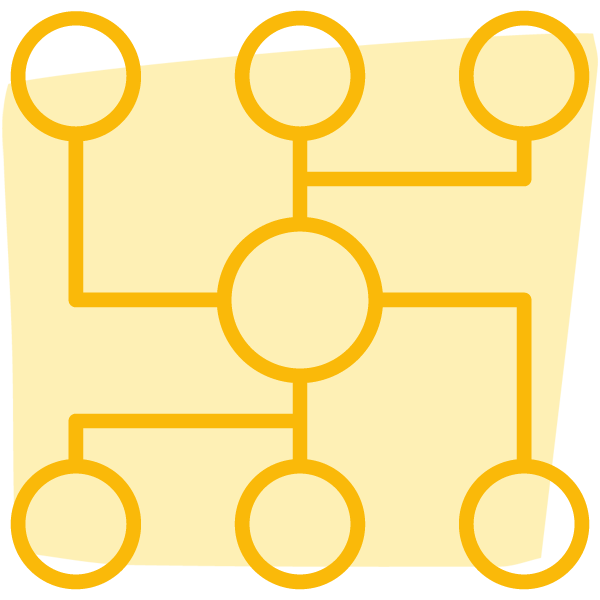At a time when inequitable systems give rise to state-sanctioned violence, economic disinvestment in disadvantaged communities, and policy changes that threaten civil liberties, how do we ensure that social innovation is a tool for driving lasting systemic change in our communities?
Transforming the world for the better requires an intentional, explicit, and sustained focus on advancing racial equity. In the context of a fellowship program like ours, we believe it’s crucial that we support and fund social innovators who are addressing the ways that race and other social identities intersect with and compound the impacts of oppression on the problems they are trying to solve. In some significant way, we hope this grows social innovation’s effectiveness as a sustainable strategy for change that exists alongside rights-based approaches, community organizing, and grassroots movement building.
To dismantle the racial inequities that persist in the many issue areas on which our Fellows work, Echoing Green is committed to:
- Supporting next-generation leaders who are invested in driving transformative change in their communities around the world and who work together to dismantle structural racism.
- Cultivating a global community of Black, Indigenous, Latinx, Asian, Pacific Islander, and other innovators of color who approach social change through racial justice frameworks.
- Ensuring that social innovation as a field approaches “problem-solving” through a lens of intersectionality and sustains its commitments to racial justice movements over the long haul.
What We Look For In A Leader
We’re looking for visionary leaders from all over the world who are committed to racial justice and have the best ideas for creating change in their communities, even if how they do it needs to change in the future. Through tailored leadership development, seed resources, and community support, we partner with Fellows to connect them to a community that understands what goes into being an entrepreneur while providing access to resources to help build and sustain their organizations.
 Leadership Skills
Leadership Skills
We look for leaders who have the ability to drive ideas forward, build support for their vision, and lead an organization toward its goals. Our Fellows tackle problems head-on and lead actionable solutions to drive change in their organizations and communities.
Fellow Example: 2011 Fellow Raj Panjabi’s ability to think strategically, forge relationships, and leverage lessons learned from previous experiences in new opportunities has allowed him to address critical global challenges from being the co-founder of Last Mile Health to an essential actor in the United States’ pandemic response.
 Purpose Alignment
Purpose Alignment
Our Fellows demonstrate a deep conviction and passion for their community and the issue they are committed to solving. Even in the face of obstacles and organizational shifts, their dedication to solving the problem does not waiver.
Fellow Example: 2018 Fellow Teresa Hodge describes the re-entry process as “the social topic that picked her.” Through financial literacy, inclusive entrepreneurship and community engagement, her organization Mission: Launch improves the economic health of individuals living with criminal records.
 Proximity to and Expertise on the Issue
Proximity to and Expertise on the Issue
We invest in leaders whose work is at an early-stage—but we know they are the experts at what they do. We value the expertise, unique perspective, and positionality of leaders directly impacted by structural racism and who work within communities to collaboratively design sustainable solutions.
Fellow Example: Growing up in a family of smallholder farmers, 2020 Fellow Jocelyn Agbo understands firsthand the challenges faced by rural farmers. She founded Farm On Wheels to help smallholder rural farmers improve food security, with the deeper mission of providing a better life for rural women and youth in hard-to-reach rural communities.
What we look for in an organization
 Innovation
Innovation
Our Fellows’ organizations seek to bring about dramatic, not just incremental, change. They build upon and make improvements to existing models or spearhead innovative solutions that introduce new contexts to existing issues.
Fellow Example: 2018 Fellow Purvi Shah founded Movement Law Lab to steward a new generation of lawyers to use law to tackle America’s toughest racial justice challenges and build power in Black and Brown communities.
 Changing Systems
Changing Systems
Social innovators know that big problems require audacious thinking, even when the solution is simple. Their organizations spearhead solutions that can directly impact many lives, shift a community’s trajectory, or change a system and structures.
Fellow Example: 2015 Fellow Colette Pichon Battle is the founder and executive director of the Gulf Coast Center for Law & Policy (GCCLP), a nonprofit public interest law firm and justice center with a mission to build, serve, and advocate for structural shifts that promote equity for Gulf Coast communities on the frontlines of climate change.
 Racial Equity
Racial Equity
Racial equity is an end-state that requires ongoing actions to build a world where all people have equal opportunity and resources to thrive. We seek out organizations on the front lines of reimagining and redesigning a world liberated from racism and the interconnected conditions that bolster its presence and preservation at all levels of society. These organizations are directly informed and driven by the knowledge, visions, and dreams of communities most impacted by structural racism and oppressive systems worldwide.
Fellow Example: 2020 Fellows Taylor Toynes and Xavier Henderson founded For Oak Cliff to liberate the neighborhood they call home from systemic oppression. Through education, advocacy, and community building, For Oak Cliff removes systemic barriers to racial equity and increases social mobility and capital for their predominantly Black neighbors.